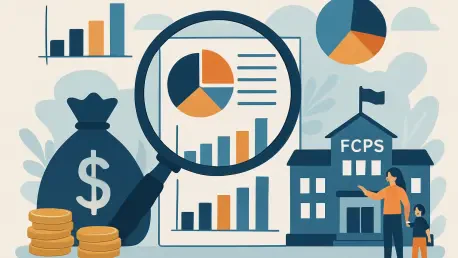In a striking turn of events, Fayette County Public Schools (FCPS) in Lexington, Kentucky, finds itself under an intense spotlight due to significant financial challenges that have sparked public concern and multiple investigations, highlighting the urgent need for reform. The district, tasked with educating thousands of students, is now navigating a complex web of fiscal scrutiny, with internal reviews and state audits uncovering potential mismanagement. Amid this turmoil, a bold step has been taken to restructure the budget oversight process, signaling a commitment to restoring trust and accountability. This move comes as a response to mounting pressure from both within the district and external entities, highlighting a critical need for transparency in how public funds are managed. As FCPS embarks on this path of reform, the stakes are high, with the community watching closely to see if these changes will yield the much-needed stability and confidence in the district’s financial future.
Addressing Financial Oversight Challenges
Restructuring for Greater Accountability
Fayette County Public Schools is taking decisive action to overhaul its financial oversight by replacing the existing 18-member Budget and Finance Committee with a leaner, nine-member group. This restructuring, proposed by Deputy Superintendent Houston Barber, aims to enhance efficiency and impartiality in decision-making. The smaller committee is designed to eliminate the staff-heavy composition of the previous group, ensuring that recommendations to the superintendent are independent and data-driven. Moreover, the new structure prioritizes transparency, with plans to make all reports and discussions publicly accessible. This shift reflects a broader acknowledgment of past shortcomings in financial management, as the district seeks to rebuild trust with stakeholders. Frequent meetings are also on the agenda for this revamped committee, allowing for continuous monitoring of budgetary concerns and a more proactive approach to addressing issues as they arise, rather than reacting after problems escalate.
Enhancing Public Trust Through Transparency
The decision to streamline the budget committee is not merely a structural change but a deliberate effort to foster greater public trust in FCPS’s financial practices. By reducing the committee size, the district aims to minimize potential biases that could arise from an overrepresentation of internal staff, instead focusing on objective analysis. Public access to the committee’s reports and discussions marks a significant departure from previous practices, offering a window into the decision-making process that was once opaque. This transparency is crucial at a time when the district faces intense scrutiny over its spending habits, with community members and officials alike demanding clarity on how taxpayer dollars are utilized. The emphasis on regular updates through more frequent meetings also ensures that the public remains informed about ongoing efforts to stabilize the district’s finances, potentially easing tensions and demonstrating a genuine commitment to rectifying past errors.
Navigating Investigations and Audits
Managing Multiple Layers of Financial Review
As FCPS works to reform its internal oversight, the district is simultaneously grappling with multiple investigations into its financial practices, adding layers of complexity to an already challenging situation. An internal review is underway, alongside a state audit spearheaded by State Auditor Allison Ball, with discussions of a potential external audit also on the table. These overlapping inquiries underscore the severity of the fiscal concerns that have come to light, painting a picture of a district at a critical juncture. The state audit, in particular, represents an external check on the district’s practices, aiming to identify systemic issues that may have contributed to the current fallout. Meanwhile, the prospect of an external audit, funded by FCPS itself, has sparked debate over resource allocation and whether such a step might duplicate efforts already in progress, raising questions about the most effective path to accountability.
Balancing Local and State Perspectives on Audits
A notable tension exists between local and state approaches to addressing FCPS’s financial challenges, particularly regarding the proposed external audit. State Auditor Allison Ball has voiced concerns that the district funding its own review could be seen as redundant, especially given the ongoing state investigation. There’s a risk that the General Assembly might not cover costs for the state audit if efforts appear duplicative, which could strain resources further. This divergence in perspective highlights a broader challenge in coordinating fiscal responsibility across different levels of governance. While FCPS leaders argue that an external audit could provide additional insights and demonstrate a proactive stance, the state’s position emphasizes efficiency and credibility in the review process. The delay in approving this audit, pushed to a November action meeting due to scheduling conflicts, adds another layer of uncertainty, with final approval potentially coming in December, prolonging the resolution of these critical issues.
Reflecting on Systemic Reform
Lessons Learned from Financial Fallout
Looking back, the financial scrutiny faced by Fayette County Public Schools revealed deep-seated issues in oversight that demanded urgent attention. The decision to restructure the budget committee emerged as a pivotal response to these challenges, marking a shift toward greater accountability and transparency in how funds are managed. Multiple investigations, including the state audit and internal reviews, exposed vulnerabilities in the district’s previous practices, serving as a wake-up call for systemic change. The reduction in committee size and the focus on public access to financial discussions stood out as tangible steps taken to address past missteps, reflecting a hard-learned lesson about the importance of impartial and open governance.
Moving Forward with Strategic Oversight
As FCPS reflects on this turbulent period, the path ahead centers on sustaining the momentum of reform through strategic oversight. The restructured committee is poised to play a central role, with its frequent meetings and data-driven approach offering a framework for continuous improvement. Stakeholders are encouraged to monitor the progress of both the audits and the committee’s recommendations, ensuring that transparency remains a priority. Additionally, resolving the debate over external audits requires careful coordination between local and state entities to avoid wasted resources. By building on the foundation laid during this crisis, FCPS has the opportunity to establish a model of fiscal responsibility that could prevent future fallout, setting a precedent for other districts facing similar challenges.









